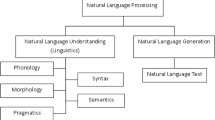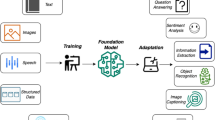Abstract
India is a nation of geographical and cultural diversity where over 1600 dialects are spoken by the people. With the technological advancement, penetration of the internet and cheaper access to mobile data, India has recently seen a sudden growth of internet users. These Indian internet users generate contents either in English or in other vernacular Indian languages. To develop technological solutions for the contents generated by the Indian users using the Indian languages, the Forum for Information Retrieval Evaluation (FIRE) was established and held for the first time in 2008. Although Indian languages are written using indigenous scripts, often websites and user-generated content (such as tweets and blogs) in these Indian languages are written using Roman script due to various socio-cultural and technological reasons. A challenge that search engines face while processing transliterated queries and documents is that of extensive spelling variation. MSIR track was first introduced in 2013 at FIRE and the aim of MSIR was to systematically formalize several research problems that one must solve to tackle the code mixing in Web search for users of many languages around the world, develop related data sets, test benches and most importantly, build a research community focusing on this important problem that has received very little attention. This document is a comprehensive report on the 4 years of MSIR track evaluated at FIRE between 2013 and 2016.

Similar content being viewed by others
Notes
Those documents which contain duplicate content in both the scripts are ignored.
References
Ahmed UZ, Bali K, Choudhury M, Sowmya VB. Challenges in designing input method editors for Indian languages: the role of word-origin and context. In: Advances in text input methods (WTIM 2011). 2011. pp. 1–9
Banerjee S, Chakma K, Naskar SK, Das A, Rosso P, Bandyopadhyay S, Choudhury M. Overview of the mixed script information retrieval (MSIR) at fire-2016. In: Forum for information retrieval evaluation. Springer; 2016. pp. 39–49.
Banerjee S, Kuila A, Roy A, Naskar SK, Rosso P, Bandyopadhyay S. A hybrid approach for transliterated word-level language identification: CRF with post-processing heuristics. In: Proceedings of the forum for information retrieval evaluation, ACM, 2014. pp. 54–59.
Banerjee S, Naskar S, Rosso P, Bandyopadhyay S. Code mixed cross script factoid question classification—a deep learning approach. J Intell Fuzzy Syst. 2018;34(5):2959–69.
Banerjee S, Naskar SK, Rosso P, Bandyopadhyay S. The first cross-script code-mixed question answering corpus. In: Proceedings of the workshop on modeling, learning and mining for cross/multilinguality (MultiLingMine 2016), co-located with the 38th European Conference on Information Retrieval (ECIR). 2016.
Banerjee S, Naskar SK, Rosso P, Bandyopadhyay S. Named entity recognition on code-mixed cross-script social media content. Comput Sistemas. 2017;21(4):681–92.
Barman U, Das A, Wagner J, Foster J. Code mixing: a challenge for language identification in the language of social media. In: Proceedings of the first workshop on computational approaches to code switching. 2014. pp. 13–23.
Bhardwaj P, Pakray P, Bajpeyee V, Taneja A. Information retrieval on code-mixed Hindi–English tweets. In: Working notes of FIRE 2016—forum for information retrieval evaluation, Kolkata, India, December 7–10, 2016, CEUR workshop proceedings. 2016.
Bhargava R, Khandelwal S, Bhatia A, Sharmai Y. Modeling classifier for code mixed cross script questions. In: Working notes of FIRE 2016—forum for information retrieval evaluation, Kolkata, India, December 7–10, 2016, CEUR workshop proceedings. CEUR-WS.org. 2016.
Bhattacharjee D, Bhattacharya, P. Ensemble classifier based approach for code-mixed cross-script question classification. In: Working notes of FIRE 2016—forum for information retrieval evaluation, Kolkata, India, December 7–10, 2016, CEUR workshop proceedings. CEUR-WS.org. 2016.
Chakma K, Das A. CMIR: a corpus for evaluation of code mixed information retrieval of Hindi–English tweets. In: The 17th international conference on intelligent text processing and computational linguistics (CICLING). 2016.
Choudhury M, Chittaranjan G, Gupta P, Das A. Overview of fire 2014 track on transliterated search. Proceedings of FIRE. 2014. pp. 68–89.
Ganguly D, Pal S, Jones GJ. Dcu@fire-2014: fuzzy queries with rule-based normalization for mixed script information retrieval. In: Proceedings of the forum for information retrieval evaluation, ACM, 2014. pp. 80–85.
Gella S, Sharma J, Bali K. Query word labeling and back transliteration for Indian languages: shared task system description. FIRE Working Notes. 2013;3.
Gupta DK, Kumar S, Ekbal A. Machine learning approach for language identification and transliteration. In: Proceedings of the forum for information retrieval evaluation, ACM, 2014. pp. 60–64.
Gupta P, Bali K, Banchs RE, Choudhury M, Rosso P. Query expansion for mixed-script information retrieval. In: Proceedings of the 37th international ACM SIGIR conference on research and development in information retrieval, ACM, 2014. pp. 677–686.
Gupta P, Rosso P, Banchs RE. Encoding transliteration variation through dimensionality reduction: fire shared task on transliterated search. In: Fifth forum for information retrieval evaluation. 2013.
HB Barathi Ganesh, M Anand Kumar, KP Soman. Distributional semantic representation for information retrieval. In: Working notes of FIRE 2016—forum for information retrieval evaluation, Kolkata, India, December 7–10, 2016, CEUR workshop proceedings. 2016.
HB Barathi Ganesh, M Anand Kumar, KP Soman. Distributional semantic representation for text classification. In: Working notes of FIRE 2016—forum for information retrieval evaluation, Kolkata, India, December 7–10, 2016, CEUR workshop proceedings. CEUR-WS.org. 2016.
Järvelin K, Kekäläinen J. Cumulated gain-based evaluation of IR techniques. ACM Trans Inf Syst. 2002;20:422–46. https://doi.org/10.1145/582415.582418.
Joshi H, Bhatt A, Patel H. Transliterated search using syllabification approach. In: Forum for information retrieval evaluation. 2013.
King B, Abney S. Labeling the languages of words in mixed-language documents using weakly supervised methods. In: Proceedings of NAACL-HLT, 2013. pp. 1110–1119.
Londhe N, Srihari RK. Exploiting named entity mentions towards code mixed IR: working notes for the UB system submission for MSIR@FIRE’16. In: Working notes of FIRE 2016—forum for information retrieval evaluation, Kolkata, India, December 7–10, 2016, CEUR workshop proceedings. 2016.
Anand Kumar M, Soman KP. Amrita-CEN@MSIR-FIRE2016: Code-mixed question classification using BoWs and RNN embeddings. In: Working notes of FIRE 2016—forum for information retrieval evaluation, Kolkata, India, December 7–10, 2016, CEUR workshop proceedings. CEUR-WS.org. 2016.
Majumder G, Pakray P. NLP-NITMZ@MSIR 2016 system for code-mixed cross-script question classification. In: Working notes of FIRE 2016—forum for information retrieval evaluation, Kolkata, India, December 7–10, 2016, CEUR workshop proceedings. CEUR-WS.org. 2016.
Mandal S, Banerjee S, Naskar SK, Rosso P, Bandyopadhyay S. Adaptive voting in multiple classifier systems for word level language identification. In: FIRE workshops, 2015. pp. 47–50.
Mukherjee A, Ravi A , Datta K. Mixed-script query labelling using supervised learning and ad hoc retrieval using sub word indexing. In: Proceedings of the Forum for Information Retrieval Evaluation, Bangalore, India, 2014.
Pakray P, Bhaskar P. Transliterated search system for Indian languages. In: Pre-proceedings of the 5th FIRE-2013 workshop, forum for information retrieval evaluation (FIRE). 2013.
Patel S, Desai V. Liga and syllabification approach for language identification and back transliteration: a shared task report by da-iict. In: Proceedings of the forum for information retrieval evaluation, ACM, 2014. pp. 43–47.
Prabhakar DK, Pal S. Ism@fire-2013 shared task on transliterated search. In: Post-Proceedings of the 4th and 5th workshops of the forum for information retrieval evaluation, ACM, 2013. p. 17.
Prabhakar DK, Pal S. Ism@ fire-2015: mixed script information retrieval. In: FIRE workshops. 2015. pp. 55–58.
Prakash A, Saha SK. A relevance feedback based approach for mixed script transliterated text search: shared task report by bit Mesra. In: Proceedings of the Forum for Information Retrieval Evaluation, Bangalore, India, 2014.
Raj A, Karfa S. A list-searching based approach for language identification in bilingual text: shared task report by asterisk. In: Working notes of the shared task on transliterated search at forum for information retrieval evaluation FIRE’14. 2014.
Roy RS, Choudhury M, Majumder P, Agarwal K. Overview of the fire 2013 track on transliterated search. In: Post-proceedings of the 4th and 5th workshops of the forum for information retrieval evaluation, ACM, 2013. p. 4.
Saini A. Code mixed cross script question classification. In: Working notes of FIRE 2016—forum for information retrieval evaluation, Kolkata, India, December 7–10, 2016, CEUR workshop proceedings. CEUR-WS.org. 2016.
Salton G, McGill MJ. Introduction to modern information retrieval. New York: McGraw-Hill, Inc.; 1986.
Sequiera R, Choudhury M, Gupta P, Rosso P, Kumar S, Banerjee S, Naskar SK, Bandyopadhyay S, Chittaranjan G, Das A, et al. Overview of fire-2015 shared task on mixed script information retrieval. FIRE Workshops. 2015;1587:19–25.
Singh S, M Anand Kumar, KP Soman. CEN@Amrita: information retrieval on code mixed Hindi–English tweets using vector space models. In: Working notes of FIRE 2016—forum for information retrieval evaluation, Kolkata, India, December 7–10, 2016, CEUR workshop proceedings. 2016.
Sinha N, Srinivasa G. Hindi–English language identification, named entity recognition and back transliteration: shared task system description. In: Working notes os shared task on transliterated search at forum for information retrieval evaluation FIRE’14. 2014.
Voorhees EM, Tice DM. The TREC-8 question answering track evaluation. In: TREC-8, 1999. pp. 83–105.
Vyas Y, Gella S, Sharma J, Bali K, Choudhury M. Pos tagging of English–Hindi code-mixed social media content. In: Proceedings of the 2014 conference on empirical methods in natural language processing (EMNLP). 2014. pp. 974–979.
Acknowledgements
Somnath Banerjee and Sudip Kumar Naskar are supported by Media Lab Asia, MeitY, Government of India, under the Visvesvaraya PhD Scheme for Electronics & IT. The work of Paolo Rosso was partially supported by the MISMIS research project PGC2018-096212-B-C31 funded by the Spanish MICINN.
Author information
Authors and Affiliations
Corresponding author
Ethics declarations
Conflict of interest
The authors declare that they have no conflict of interest.
Additional information
Publisher's Note
Springer Nature remains neutral with regard to jurisdictional claims in published maps and institutional affiliations.
This article is part of the topical collection “Forum for Information Retrieval Evaluation” guest edited by Mandar Mitra and Prasenjit Majumder.
Rights and permissions
About this article
Cite this article
Banerjee, S., Choudhury, M., Chakma, K. et al. MSIR@FIRE: A Comprehensive Report from 2013 to 2016. SN COMPUT. SCI. 1, 55 (2020). https://doi.org/10.1007/s42979-019-0058-0
Received:
Accepted:
Published:
DOI: https://doi.org/10.1007/s42979-019-0058-0




